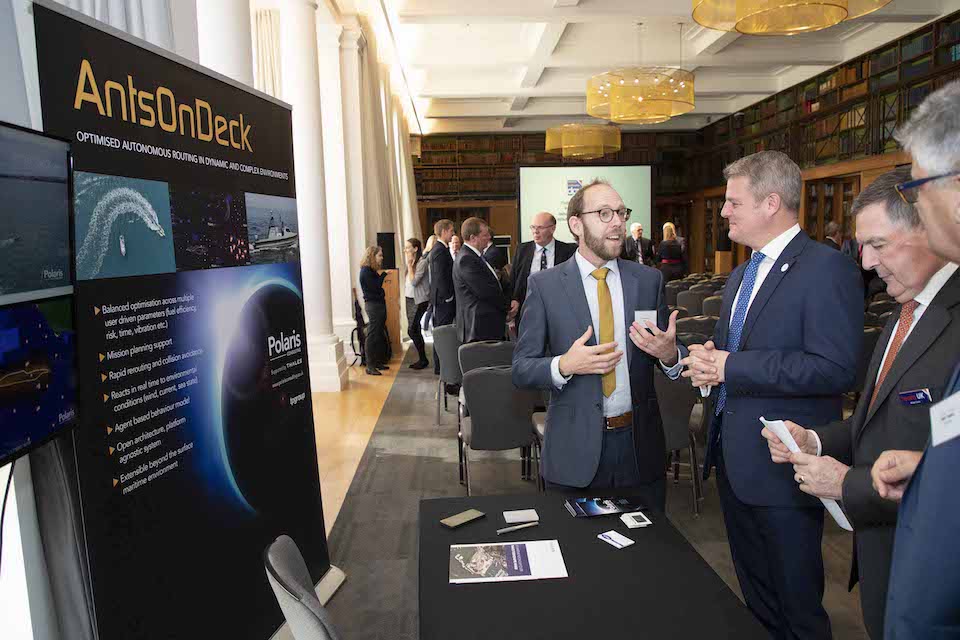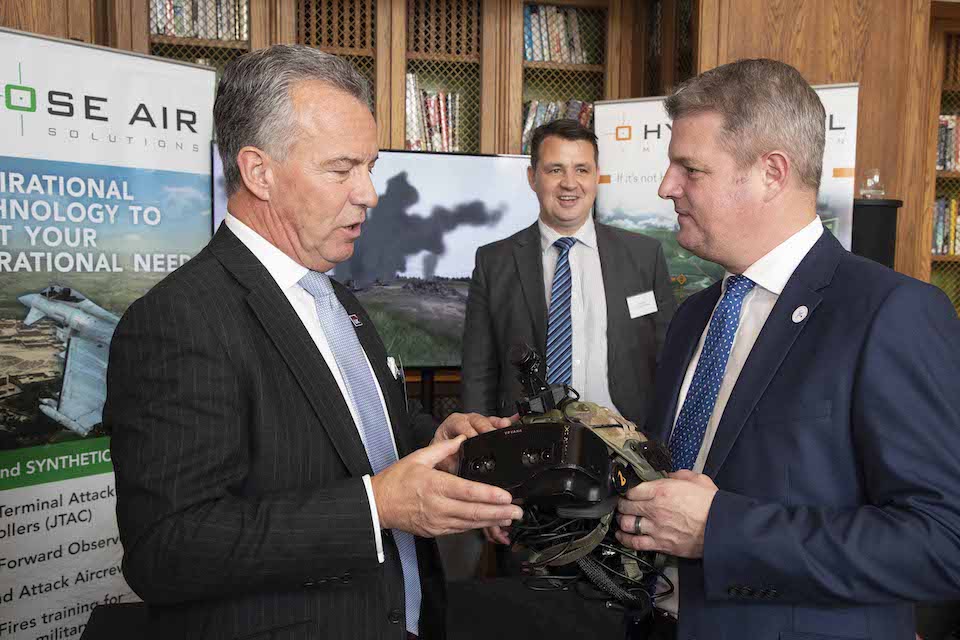The winners provided innovative solutions to key strategic future demands for UK defence in autonomy and big data. The companies and their ground-breaking technologies will receive combined investment and support worth over £4 million from the MOD and £6 million from industry partners to see their full development.
The winning solutions announced at the Institute of Engineering and Technology today are:
- Close Air Solutions with Project Hyper Real Immersion
- QinetiQ’s Software Defined Multifunction LIDAR
- Horiba Mira’s UGV Localisation and Perception using Deep Learning Neural Networks
- Polaris’ Ants on Deck
Defence Minister Stuart Andrew said:
From shrewd navigation software, A.I. driven autonomous vehicles, laser radar to mixed reality training systems, today’s winners are a clear demonstration of industry rising to meet the complex challenges of modern warfare. The MOD, working with commercial partners, will see these pioneering technologies go from the drawing board to the battlefield.

Training is at the core of military capabilities and Project Hyper Real Immersion is designed to provide cutting-edge realistic air combat training. This revolutionary technology from Close Air Solutions aims to enable fully networked live training exercises with NATO and Coalition partners. This will reduce costs and increase safety for service personnel.
QinetiQ’s Software Defined Multifunction LIDAR (laser radar) system will provide a range of high-tech capabilities including 3D imaging, optical communication and covert targeting. Conventional 3D mapping can discover a vehicle under camouflage netting but LIDAR could also determine whether the engine is on and the type of vehicle using vibration sensors. The system could be adopted onto small satellites and unmanned and manned platforms
Horiba Mira is developing a super-intelligent navigation system which uses Artificial Intelligence algorithms to identify landmarks around a military vehicle to provide a greater situational awareness. This technology will be key in developing the effective operation of unmanned autonomous vehicles in dangerous areas which will remove soldiers from dangerous situations and task them to more valuable roles. This is a crucial aim of the Last Mile logistics that UK armed forces are developing.
Continuing with the autonomy theme, Polaris are developing a pioneering software system that autonomously generates the best routes for Unmanned Surface Vehicles (USVs). AntsOnDeck increases fuel efficiency which allows extended operations, provides real-time awareness of conditions and environment and can be extended to platforms across the air, land and sea domains.
Co-chair of the Defence Growth Partnership, Allan Cook CBE, said:
The innovative solutions developed by our own defence companies over the course of the Innovation Challenge is amazing. Using autonomy and big data these winning companies have found unique solutions to the ongoing challenges we face in the defence sector.
The winners of the DGP’s Innovation Challenge Final Phase have proven that their products are fundamentally important to the growth and prosperity of their companies. This final funding for the winners will enable them to complete their development and ultimately provide essential solutions in a dynamic, international and competitive market. Their success will benefit the defence sector in the UK and help us win more business in export markets.

The Defence and Security Accelerator, in tandem with the Defence Solutions Centre, established the competition in 2012 to explore and develop solutions to ensure the UK armed forces stay ahead of adversaries by finding more efficient methods of communication, logistics, protection, intelligence and training. The initial investment of £10 million for the competition has been matched pound for pound with industry partners and since then, the competition has received an additional £4 million. This is part of the wider £800 million Defence Innovation Fund.
Today’s event brought together leading industry and military figures from the defence equipment community. This joint approach aims to create high quality UK jobs, boost defence exports and encourage collaboration between large industry, SMEs and academia.
Follow this news feed: MOD





